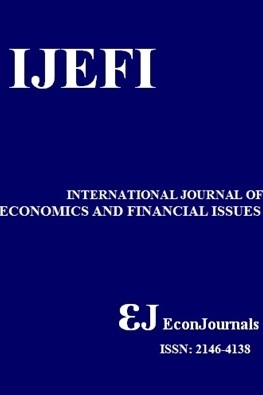Performance of Islamic and Conventional Banks in Pakistan: A Comparative Study
Performance of Islamic and Conventional Banks in Pakistan: A Comparative Study
- Başlangıç: 2011
- Yayıncı: İlhan ÖZTÜRK
Raw-material-intensive Economy and Development of Small and Medium-sized Enterprises in Kazakhstan
Nurlan Kurmanov, Berik Beisengaliyev, Amangeldy Dogalov, Dametken Turekulova, Nurzhamal Kurmankulova
P.k. HALDAR, S.m. Mahbubur RAHMAN, Md. Shahin MİA, Ferdoushi AHMED, Ahmad BASHAWİR
Individual Choice of a Pension Fund in Russia: Are the Investment Results of the Fund Important?
Karen TUMANYANTS, Eugenia V. GULYAEVA
Testing the Permanent Income and Random Walk Hypotheses for Turkey
Faik BİLGİLİ, Hayriye Hilal BAĞLITAŞ
The Management of Drinking Water and Long-term Perspective: Tunisia Case
Random or Deterministic? Evidence from Indian Stock Market
İvani BORA, Naliniprava TRİPATHY
Monetary Policy Response to Exchange Rates: An Empirical Investigation
Maria Evgenievna SKACHKOVA, Olga Jurjevna LEPİKHİNA
The Relationship between Exchange Rate and Inflation: An Empirical Study of Turkey
